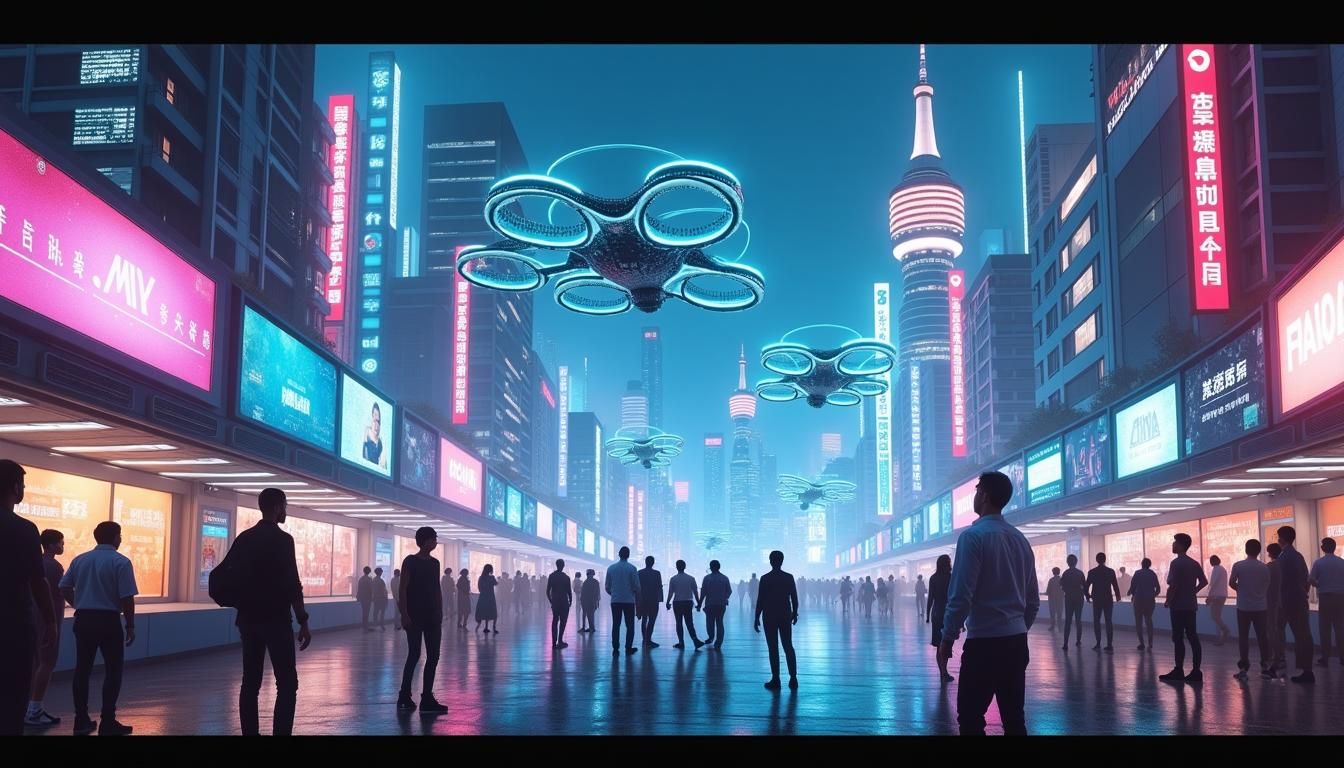
At Aleck.ai, we’re passionate about tracking the seismic shifts in technology that redefine industries and daily life. As we approach mid-2025, three pillars of innovation—artificial intelligence, quantum computing, and hyper-connectivity—are converging to create unprecedented opportunities. Let’s explore these advancements and their ripple effects across sectors.
At GTC 2025, Nvidia CEO Jensen Huang unveiled the next generation of AI accelerators: Blackwell Ultra (2026) and Vera Rubin (2027). These chips promise to revolutionize data centers, with projections suggesting Nvidia’s infrastructure could reach $1 trillion by 2028. Key innovations include:
- Agentic AI: Systems capable of reasoning, planning, and understanding contextual nuance.
- Physical AI: Robotics that grasp real-world physics concepts like friction and inertia.
- Isaac GR00T N1: An open-source foundation model for humanoid robots, enabling developers to train machines for complex tasks.
Nvidia’s collaboration with General Motors aims to integrate these advancements into self-driving cars, enhancing autonomy and safety. Meanwhile, the Cosmos AI model generates synthetic training data to reduce reliance on real-world datasets—a game-changer for industries like healthcare and manufacturing.
Companies like PsiQuantum are racing to deploy utility-scale quantum computers by 2027. These machines leverage quantum superposition to solve problems classical computers cannot, such as:
- Drug Discovery: Simulating molecular interactions to accelerate treatments for diseases like Alzheimer’s.
- Climate Modeling: Predicting weather patterns and optimizing renewable energy grids.
- Cryptography: Developing unbreakable encryption protocols.
While engineering hurdles remain, quantum computing’s potential to address global crises makes it one of 2025’s most-watched fields.
The global rollout of 5G networks is enabling breakthroughs in:
- Telemedicine: Real-time remote surgeries and AI-driven diagnostics.
- IoT Ecosystems: Smart cities with interconnected sensors for traffic, pollution, and energy management.
- Immersive Entertainment: VR/AR experiences with near-zero latency.
Research into 6G is already underway, targeting terabit-speed data transfers and holographic communications. This infrastructure will underpin advancements in AI and quantum computing, creating a symbiotic relationship between hardware and software.
AI is reshaping how brands engage consumers:
- Voice Search Optimization: Adapting SEO strategies for conversational queries.
- Generative Content Tools: Platforms like Adobe’s AI agents automate ad creation and A/B testing.
- Social Commerce: TikTok and Instagram’s in-app shopping features, powered by recommendation algorithms.
AI is enabling circular fashion economies:
- Blockchain Traceability: Brands like H&M use AI-powered systems to track garment lifecycles.
- Digital Fashion: AR try-ons reduce returns and waste.
- Material Innovation: AI accelerates R&D for bio-based textiles like mycelium leather.
As society embraces “digital detoxes,” AI plays a paradoxical role:
- Mental Fitness Apps: Meditation coaches using natural language processing.
- Smart Homes: AI minimizes distractions through context-aware notifications.
The synergy between AI, quantum computing, and connectivity is creating a feedback loop of innovation. At Aleck.ai, we believe understanding these trends is critical for businesses and individuals alike. Key takeaways for 2025:
- AI Democratization: Open-source models like Isaac GR00T N1 will lower entry barriers for robotics startups.
- Ethical Imperatives: Transparent AI and sustainable tech practices are non-negotiable for consumer trust.
- Human-Centric Design: The most successful innovations will augment—not replace—human capabilities.
As Jensen Huang noted at GTC, “We’re not just building smarter machines—we’re building machines that understand our world.” This vision of context-aware technology will define the next decade.
Stay tuned to Aleck.ai for ongoing analysis of these transformative trends. Whether you’re a developer, entrepreneur, or tech enthusiast, the tools to shape tomorrow are being forged today.